Sukhbir Badal's Latest Missive to Akal Takht: An Analysis
The Ministry of Home Affairs, Sikh Gurdwara Election Commission, and the Punjab Government, cannot continue to delay the general house election of the SGPC, which was last held in 2011, any further.
Sukhbir Badal's Submission to Akal Takht
Introduction
Yesterday, on November 13, Sukhbir Singh Badal, the President of Shiromani Akali Dal (SAD), submitted a detailed letter to the Akal Takht Secretariat, presenting his stance on recent events and controversies surrounding both himindividually as well his party. In this communication, Sukhbir Badal provides a nuanced account of his position, addressing allegations and decisions that have had implications for SAD’s religious, social, and political standing. The letter begins by tracing the chronology of events, starting with the complaint submitted to the Akal Takht by dissident Akali leaders on July 1, 2024. Through this timeline, Badal seeks to clarify his actions and offer insights into the broader context of the challenges faced by the SAD.
Background of the Complaint and Allegations
Sukhbir Badal characterizes the initial complaint as part of a broader conspiracy against the Shiromani Akali Dal (SAD), with the intent to undermine the party from religious, social, and political angles. He dismisses the accusations as unfounded, emphasizing that many of the complainants had previously held prominent roles and enjoyed privileges within both government and party structures. Sukhbir frames the complaint as one aimed at discrediting the SAD as an entity rather than attacking just him personally—a distinction he highlights as essential to understanding the motives behind the allegations.
Chronology and Responsibility
According to Sukhbir Badal’s account, the Akal Takht Secretariat forwarded the complaint to him on July 17. In response, on July 24, he submitted an unqualified apology, taking full moral responsibility for any unintentional missteps or mistakes or errors in judgement and expressed his willingness to accept any disciplinary action, punishment, or ‘tankhah’ as directed. Badal frames this acceptance as a demonstration of his deference to the authority of the Akal Takht and his commitment to the Sikh Panth. By embracing accountability in this manner, he signals a readiness to bear collective responsibility on behalf of all involved, positioning himself as both a leader and a devoted servant of the Panth.
Collective Decision-Making and Humility
Sukhbir Badal emphasizes that his actions, whether within the government or the Shiromani Akali Dal (SAD), were part of collective decisions made by the Punjab Government and the SAD respectively. In his communication, he expresses his willingness to take on responsibility and accountability on behalf of all those involved in these decisions. He describes this approach as an effort to shield his party and its members from criticism, while reaffirming his commitment to following the Akal Takht’s directives. Notably, he highlights his personal appearance before the Akal Takht on August 31—just one day after being formally declared “tankhaiya” by the five Singh Sahiban—where he sought disciplinary action (tankhah) and submitted an unqualified apology, underscoring his readiness to accept any outcome or reprimand or censure.
Request for Expedited Action on Disciplinary Proceedings
In his letter dated November 13, Sukhbir Badal appeals for an expedited decision from the Akal Takht and the five Singh Sahiban regarding his disciplinary case. He references multiple appeals made by Akali leaders, individually as well as in delegations, to the Akal Takht on October 17 and 22, stressing the need for a timely resolution as the Punjab elections were set for November 20. While the Akal Takht’s directive did not bar the SAD from election activities, it restricted Sukhbir Badal’s individual participation. According to him, this limitation left the party’s rank and file unwilling to enter the electoral arena without his active leadership in campaigning and electioneering. Consequently, SAD abstained from contesting the by-elections, a choice that Badal acknowledges came at a significant cost to both the Panth and the SAD.
Public Perception and Political Strategy
The SAD’s decision to abstain from the elections ostensibly due to the pending Akal Takht proceedings has attracted public criticism, with some interpreting it as the party’s reluctance to engage with the public—a missed opportunity to reconnect with Punjab voters. Sukhbir Badal contends that this decision was made out of respect for the Akal Takht’s authority, even though it led to significant political costs for both SAD and the broader interests of Punjab. His latest communication can be seen as an attempt to mitigate these losses and serve as a form of damage control, aiming to address concerns and reassure party supporters of his commitment to upholding religious principles alongside political responsibilities.
Sukhbir Badal emphasizes his party’s commitment to participating in Punjab’s electoral process. He admits that not contesting these elections may have cost SAD politically but asserts that this sacrifice was made to respect the Akal Takht. His letter portrays him as a dedicated servant of the Panth, willing to accept any disciplinary action to move forward.
Personal Setback and Injury
On the same day, reports surfaced of Badal sustaining a hairline fracture in the right foot. The exact circumstances were undisclosed, but he received treatment at Amritsar's Shri Guru Ramdas Institute of Medical Sciences and was reportedly in good spirits.
Interpretation and Analysis
For those familiar with Punjabi script, this communication is a nuanced message to the SAD’s rank and file and the people of Punjab. This letter, in part, serves as damage control, addressing criticisms of SAD’s electoral abstention and reinforcing Sukhbir Badal's image as a committed leader not only politically but also from a panthic perspective.
Key Points of Analysis
Election Participation Concerns
The SAD’s choice to abstain from the Punjab elections has invited public criticism, interpreted by some as an evasion by the SAD leadership. Badal’s communication seeks to counter this narrative, emphasizing respect for the Akal Takht as the primary pretext for abstaining from the electoral arena.Urgency for Resolution
Sukhbir Badal seems eager for a prompt resolution, perhaps believing that a swift decision would allow him to fulfill the Akal Takht’s directive and quickly return to his duties, political as well as social, after complying with the directives of the ‘tankhah’.Political Dynamics with the BJP
Badal’s role in potential alliances, such as with the BJP, remains a sensitive issue. The Akal Takht's decision has implications on such political relationships, especially if he is to maintain his position in SAD.Collective Responsibility
By taking moral responsibility on behalf of SAD and its leaders, Badal appears to be shielding the party from further scrutiny and also projecting himself as a leader who is not into the business of apportioning blame. He stresses that other leaders who received similar show-cause notices have yet to face action.Respect for Sikh Traditions
Sukhbir Badal repeatedly affirms his respect for the Akal Takht, stating he will humbly accept any disciplinary action or ‘tankhah’ imposed.
Our Analysis
When the show-cause notice was issued to him, Sukhbir Badal, rather than contesting it on its merits, chose to accept moral responsibility for any lapses or errors concerning the Sikh Panth. On August 31, the day following the formal announcement of his status as "tankhaiyaa," he submitted an undertaking acknowledging his accountability. It is likely, in our view, that Badal expected a manageable punishment, perhaps a symbolic act of service like cleaning utensils or shoes for the Sangat, which would last only a couple of weeks. However, he may not have anticipated that the five Singh Sahiban’s deliberations would extend over weeks and months, nor that the Akal Takht would seek consultation with a wider base of Sikh intellectuals.
There also seems to be an underlying concern that the annual SGPC presidential election might bring a substantial challenge to the Badal faction. The current SGPC house, elected in 2011 and far past its five-year mandate, has consistently returned a nominee from the Badal faction. This year, to reassert control, the election was moved forward to October, resulting in Advocate Harjinder Singh Dhami’s election as President. This victory came despite a renewed challenge from rebel Akali leader Bibi Jagir Kaur, former SGPC President. Interestingly, while Jagir Kaur had secured 42 votes in last year’s election, she only garnered 32 this time, suggesting a noticeable absence of support from BJP/RSS-aligned members who had reportedly backed her previously.
Sukhbir Badal’s political strategy may have hinged on the idea that a formal punishment and its fulfilment would cleanse him of any lingering criticisms within the Sikh community, not only related to doctrinal issues but also to the unprovoked actions during incidents like the Kotkapura and Behbal Kalan firings. Yet, what has transpired is that his efforts to extricate himself from this political predicament have only seen him sink further into it. The decision to abstain from the by-elections, the unresolved tankhah, and poor results in the gram panchayat elections—where SAD did not perform well—all point to an uncertain political future for Sukhbir Badal, if not the SAD as a whole. Any perceived maneuvering or contrived outcomes will likely be rejected by the broader Sikh community, even if publicly, individuals express their intent to abide by the Akal Takht’s decisions.
Our View
The path forward is clear: the Central Government, particularly the Ministry of Home Affairs, the Sikh Gurdwara Election Commission, and the Punjab Government, must not continue to delay the general election of the SGPC. The last date for voter registration concluded on September 16, and the subsequent process of verification should be completed without further delay. With gram panchayat elections completed and urban local body elections set to conclude in the next two months (per the Supreme Court’s directives), it is both fair and reasonable that the broader Sikh community, particularly the younger Sikhs who have reached the voting age of 21 years since 2011, be allowed to elect their “mini parliament” responsible for managing their historical gurdwaras and shrines.
Prolonging the delay only serves to benefit Sukhbir Badal, as his faction retains a firm grip on the SGPC Executive Committee and its management. It is pertinent to note that, while the status of the Jathedar Akal Takht is supreme in temporal matters for the Sikhs and predates the Sikh Gurdwara Act of 1925 by centuries, under the current legal framework, it is the SGPC Executive Committee that appoints and can summarily remove or transfer any office-bearer, including the Jathedar of Akal Takht, without assigning any reason—a power that has been exercised on numerous occasions in recent times. Continued delay will only strengthen rumours that back-channel negotiations between SAD and BJP are active, and that the Central Government is avoiding a decision that could potentially weaken Sukhbir Badal’s position and his longstanding control over the SGPC.
While intelligence inputs may have raised concerns that so-called radical elements could seize control of this premier Sikh institution, potentially posing national security concerns, such fears appear, in our opinion, to be misplaced. The recent gram panchayat elections, held across over 14,000 villages, showed no signs of radical or separatist voices emerging. Similarly, the results of the four Vidhan Sabha by-elections, due on November 23, indicate no presence of radical elements in the fray. If the Central Government is genuinely committed to addressing Punjab’s challenges, its first step should be to conduct fair and transparent SGPC elections with minimal interference. Holding these elections without political party symbols would help prevent, or at least minimise, direct political interference in SGPC affairs. Without this foundational action, Punjab will remain suspended in a state of uncertainty—one that mirrors the bleakness of its air quality.
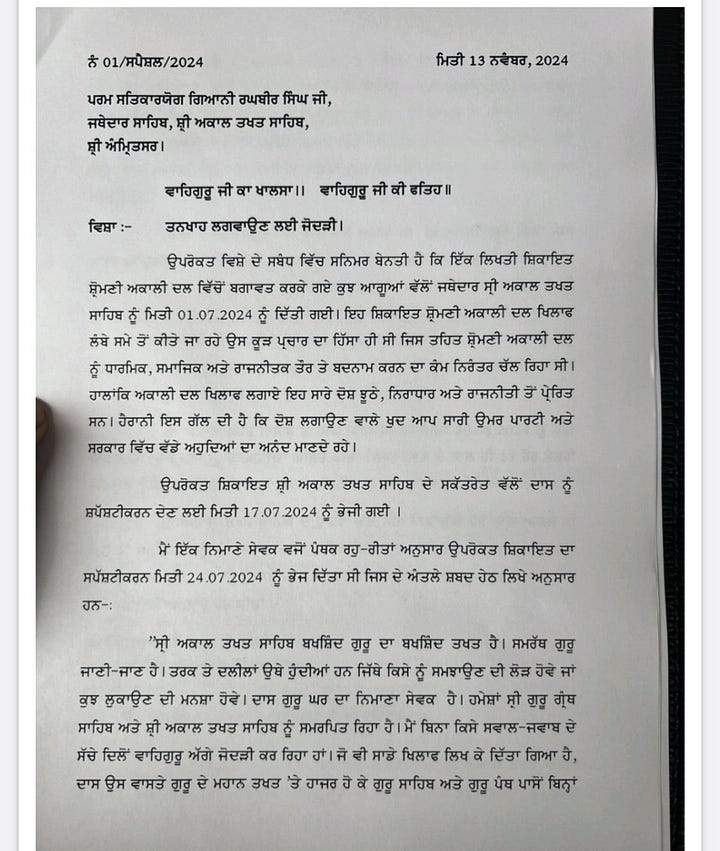

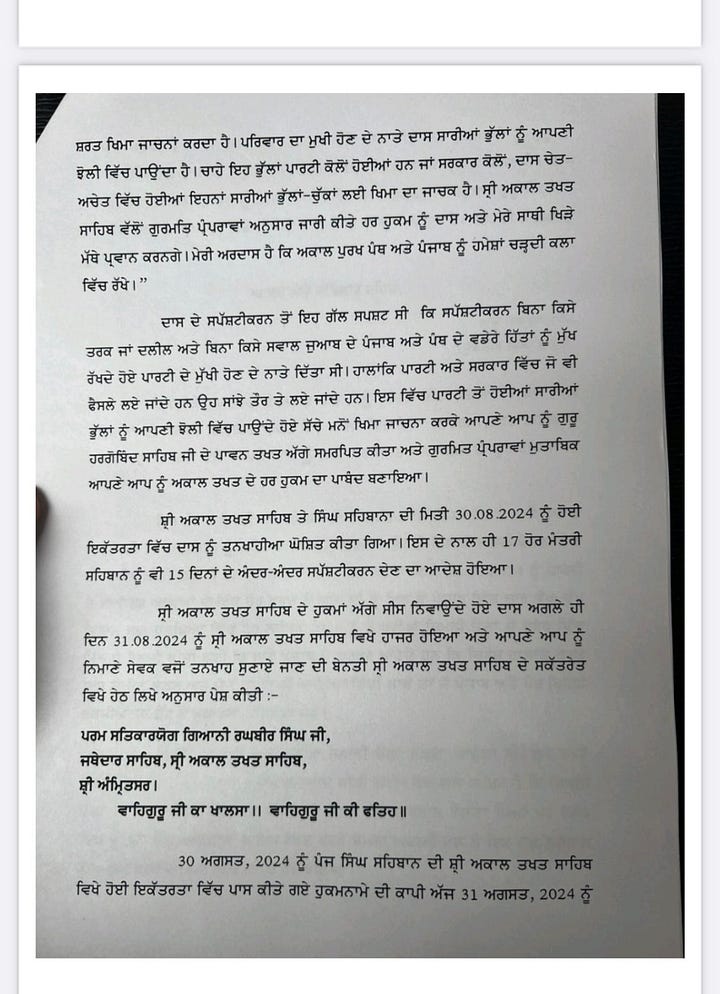


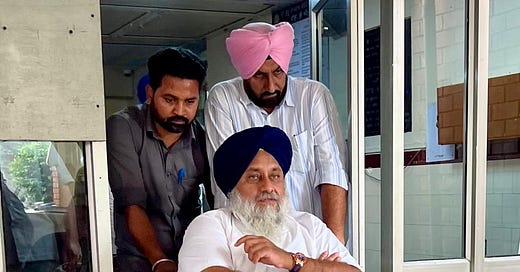



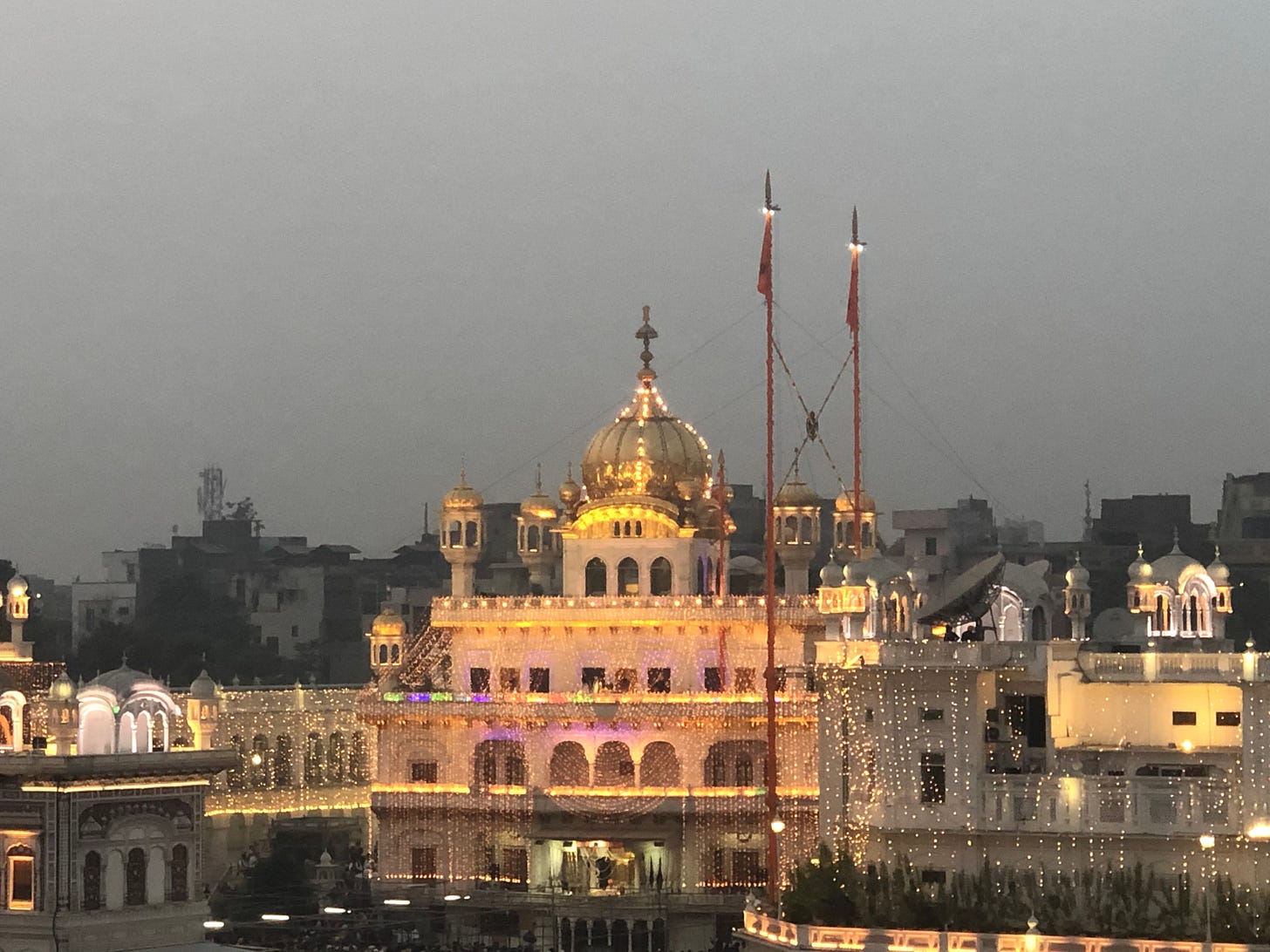
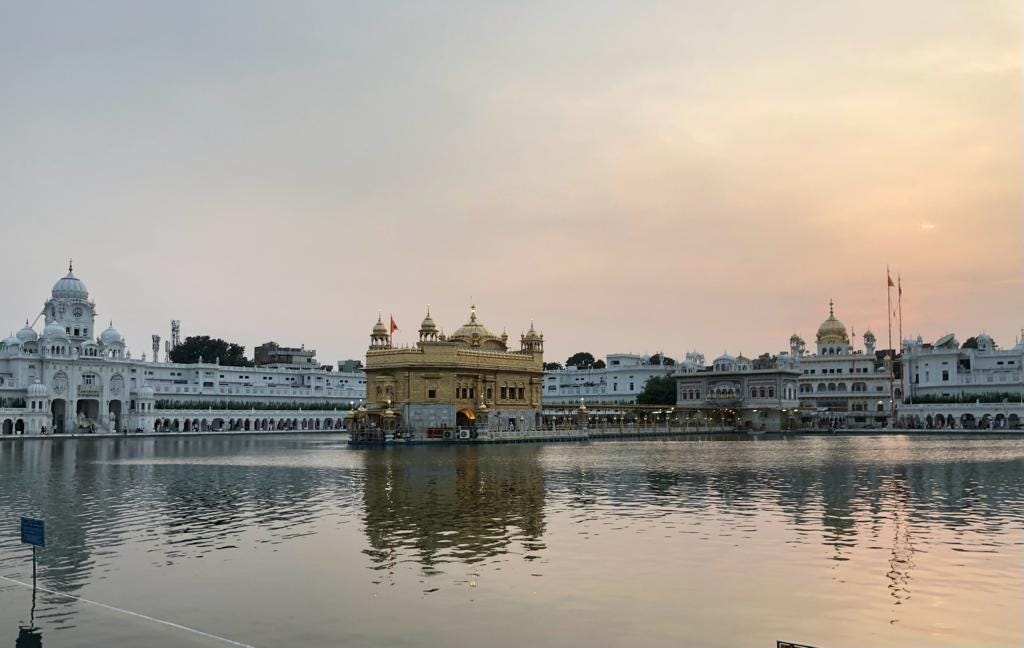
ਹੁਕਮ ਕੀਏ ਮਨਿ ਭਾਵਦੇ ਰਾਹਿ ਭੀੜੈ ਅਗੈ ਜਾਵਣਾ
ਨੰਗਾ ਦੋਜਕਿ ਚਾਲਿਆ ਤਾ ਦਿਸੈ ਖਰਾ ਡਰਾਵਣਾ
ਕਰਿ ਅਉਗਣ ਪਛੋਤਾਵਣਾ ।।